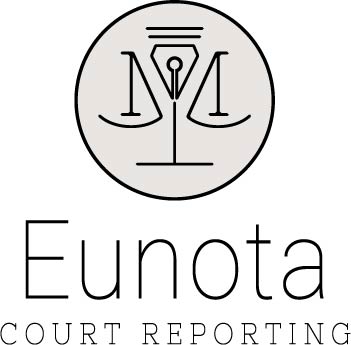Will Computers Replace Court Reporters? It’s Doubtful.
Everchanging Times
The last decade has shown tremendous growth in the field of technology and this raises the question of if computers will replace court reporters. A large part of this change is the shift towards greater efficiency in both costs and time. We see this all the time – self checkouts at the grocery store, robo-advisors in financing, and more; all leading to the assumption that something similar will happen in the legal realm. What things can be optimized in legal processes to reduce both cost and time?
Recording
The main change in recording processes in Atlantic Canada (New Brunswick, Nova Scotia, Prince Edward Island, Newfoundland and Labrador) is the use of digital recording devices. Gone are the days where court reporters use cassettes and CDs to record court hearings and discoveries. This is a good thing because digital recordings are more easily stored, shared, and backed up thus resulting in efficiencies in both cost and time. This being said, the court reporter role must remain: an unbiased third party must be in charge of operating the recording machine. In addition, there are no computer programs currently available that would distinguish when to record, go off record, go back on record, et cetera, thus securing the role of the court reporter for recording purposes.
Typists
The main change in transcription processes in recent history is the switch from handwriting, to typewriting, to computer typing. Gone are also the days where a court reporter sits cross-legged in a court room clacking away on a loud typewriter (although this is the most common image that comes to mind when we hear the words “stenographer” or “court reporter”). The typists of today, both young and old, have been working on keyboards for over two decades so even the general public can possess excellent typing speeds (grammar and punctuation, not so much). Shorthand court reporters are in short supply simply because typing speeds for the modern court reporter on a computer keyboard can nearly match verbatim transcription.
Transcription
In modern day, transcription software is available in both legal and every day settings; even social media platforms like Instagram have auto-generated captioning options for users which will transcribe audio to text for free. Paid legal software is also available and is much more reliable than free options, but there are major drawbacks like the ability for the program to only track one voice, etc. While these programs are still evolving, the transcriptionist still has a crucial role in the legal process because it takes a human eye to ensure that text properly represents the spoken word of a testimony. The incorrect placement of a comma, for example, could imply a completely different answer than what was intended. This is especially true for local dialects, and particularly so in New Brunswick, where Chiac is a very common language spoken by Acadians which combines aspects of not only French and English, but also has its own vocabulary which changes depending on which area of the province you are speaking in. These transcripts tend to take longer and are essentially impossible to complete via transcription software because the result is simply unreliable. Again, the court reporter’s role is safe.
Court Reporters are Here to Stay
In summary, court reporters, stenographers, transcriptionists, and real-time typists are here to stay. The role they play in the court system is too important to be left to computers which cannot distinguish the subtleties of human language and meaning, especially when justice hangs in the balance. Although there have been many advancements to help improve efficiency in both time and cost in this administrative sector of the legal field, the human component of the role is essential for accuracy.
Now that you understand the general improvements to court reporting efficiencies, it’s important to hire a court reporter who does all that is possible to reduce turnaround time and costs for your clients while also ensuring accuracy. Eunota Court Reporting boasts a robust three-tiered secure file storage system to ensure the safety and confidentiality of your files. We also hire certified transcriptionists with extensive experience working with the Department of Justice in New Brunswick. With Eunota, we combine old school attention to detail with modern technologies to bring you an exceptional product and experience.
Photo credit: https://claudeai.wiki/
Got Questions?
Eunota Court Reporting is here to help you better understand the court reporting industry. If you have had a chance to review our blog articles and still have questions please do not hesitate to reach out!

